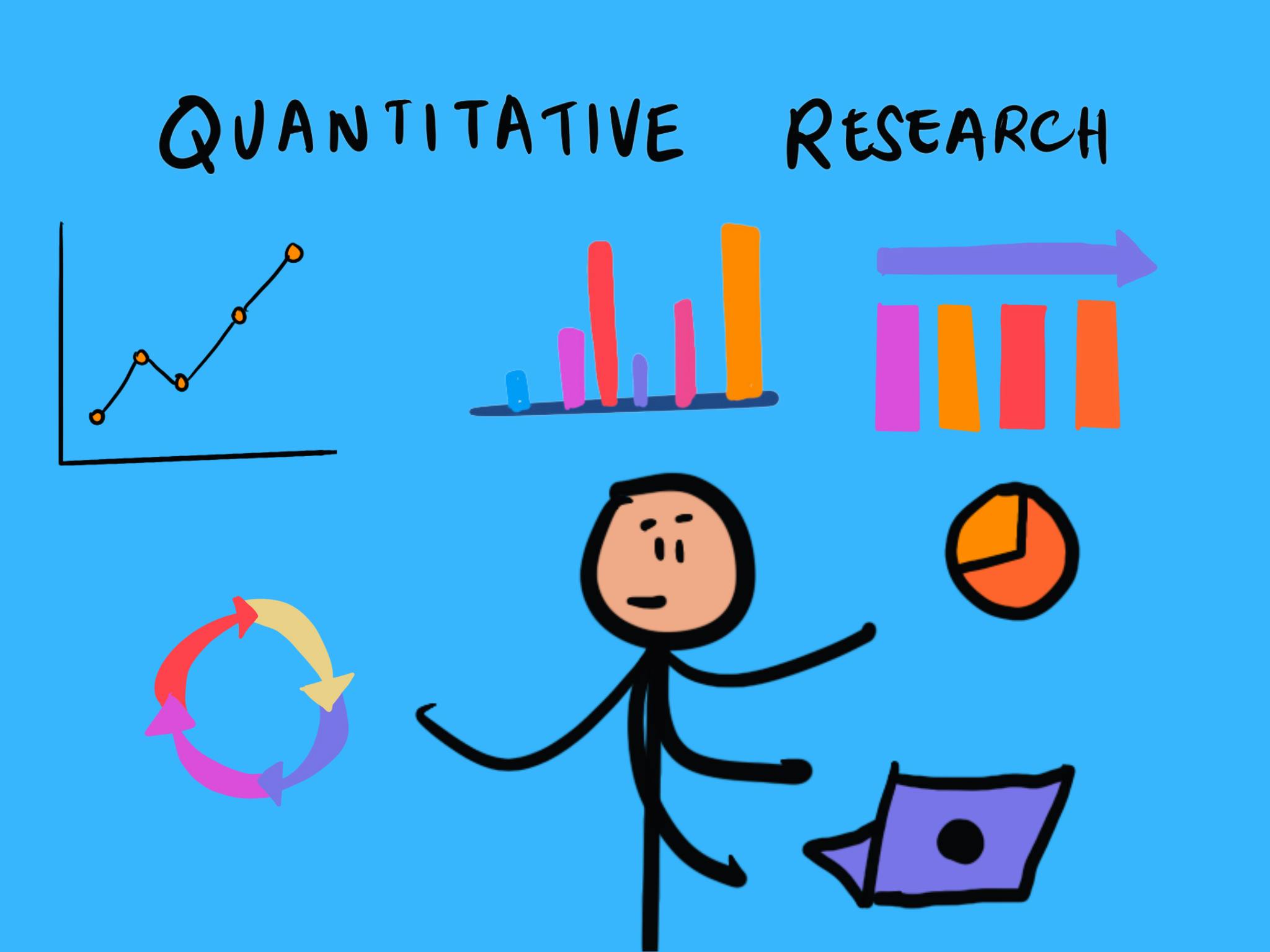Quantitative Research
What is Quantitative Research?
Quantitative research is a systematic approach to investigating phenomena through numerical data and statistical analysis. It focuses on quantifying relationships, patterns, and outcomes, allowing researchers to make objective, data-driven decisions based on measurable results.

The Basic Idea
Many people believe that talking to your plants will nurture their growth. If you wanted to prove this hypothesis, it would be best to conduct quantitative research to gather observable data instead of relying on anecdotes.
You could set up a few plants in identical conditions (same temperature, sunlight, and amount of water) and manipulate the independent variable of the experiment by speaking to some plants and not others. Over the next few weeks, you measure the growth of each plant—the dependent variable—and see how they differ. The measurements over time will provide you with valuable quantitative data to see if there really is a correlation between speaking to plants and their growth.

This experiment is an example of the power quantitative research has to transform an urban legend into a data-backed claim through collecting objective data that describes the relationship between speaking to a plant and its growth. Quantitative research can turn abstract concepts into measures that can be objectively assessed.1 Common methods of collecting quantitative data include conducting an experiment in a controlled environment, distributing surveys with rating scales, or analyzing historical records.1
Through the collection and analysis of numerical data using structured tools, quantitative research helps us test hypotheses, identify patterns, and predict outcomes. The reliance on numerical data means that quantitative research tends to be more objective than qualitative research, aiming to find correlations that can be applied outside of the context of the study.2
Quantitative research is often concerned with the “what”—showing the relationship between a variable and outcome—rather than the “why.” Once quantitative research reveals a correlation between two variables, qualitative data can supplement the research and dive deeper into what the numbers indicate. The most robust studies will leverage both quantitative and qualitative research, producing comprehensive results that tackle the phenomenon from different angles.
“Research is a formalized curiosity. It is poking and prying with a purpose. It is a seeking that he who wishes may know the cosmic secrets of the world and they that dwell therein.”
— Zora Neale Hurston, American anthropologist, Dust Tracks on a Road3
About the Author
Emilie Rose Jones
Emilie currently works in Marketing & Communications for a non-profit organization based in Toronto, Ontario. She completed her Masters of English Literature at UBC in 2021, where she focused on Indigenous and Canadian Literature. Emilie has a passion for writing and behavioural psychology and is always looking for opportunities to make knowledge more accessible.



















